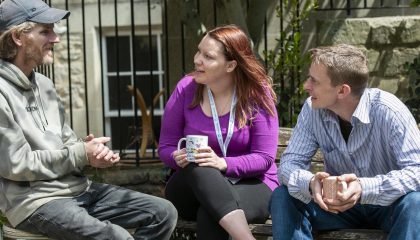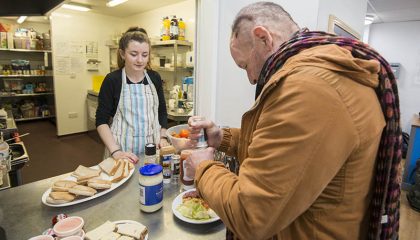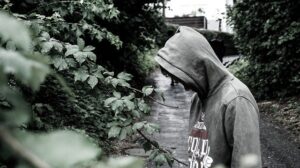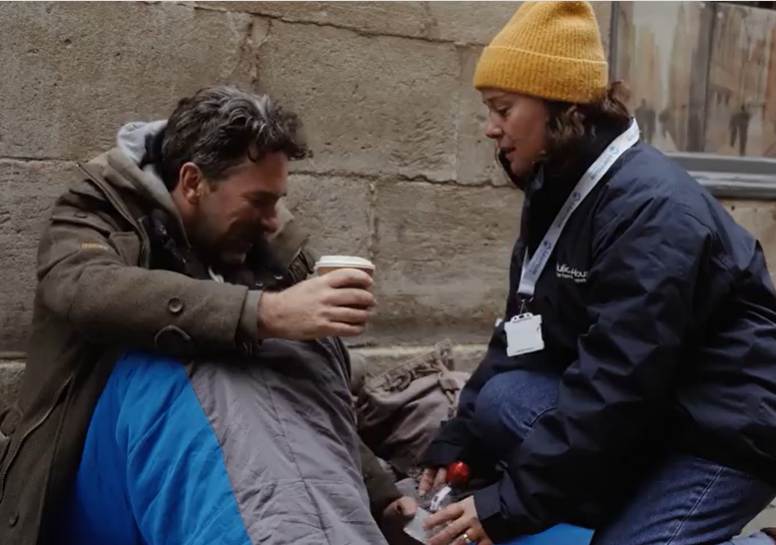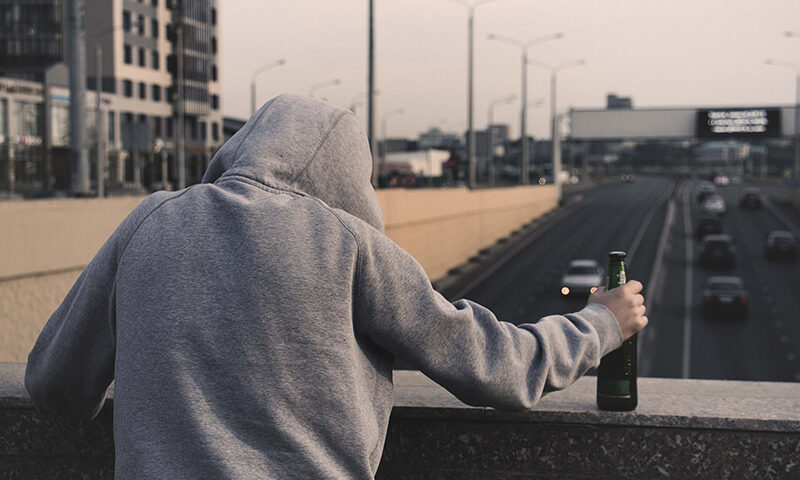
Many of the clients we work with suffer from addiction. This could be alcohol and/or drugs and usually stems from childhood trauma; which ultimately has a huge impact on their mental health, as well as their ability to establish and maintain relationships. We aim to be the one constant in people’s lives, when they are struggling with so many other barriers and challenges to change.
Many of our outreach teams work alongside dedicated addiction recovery specialists to offer wrap-around client support and direction to recover from addiction, whether this is DHI in Bath or Together Devon in Exeter, we all have the same goal of supporting the person through recovery and onwards to a life that enables everyone’s fullest potential to be reached.
We chatted to some of our staff, some of which have been through their own addiction battles, to find out a bit more about it and how they see it affecting their clients.
What is addiction?
We don’t have a perfect answer to this, it isn’t a physical health condition, it’s categorised as a mental health condition but isn’t always treated as one. It’s almost a disease without an answer or a disease without a home. It’s often treated more like a personal choice or an individual’s moral failing than an illness.
People often seek help when they have identified they no longer have control over drug use. I think there is a distinction between dependency and addiction; dependency is more when someone’s body physically needs the drug or alcohol. Addiction is more than that- it’s a mental thing as well- someone must have the drugs or alcohol against their better judgement- it’s like seeing yourself hitting your head against a brick wall without being able to stop it.
Often people will have obsessive compulsive behaviours as a child- these behaviours can address psychological needs, then as an adult drugs or alcohol can fill that need. I see starting drugs as a symptom of addiction- the psychological behaviours can often be seen in childhood far before the drugs or alcohol are introduced. Often drugs or alcohol make people feel how they thought a normal person should feel; it feels like the missing piece of the jigsaw puzzle.
Early years trauma is also often linked to addiction, a person’s psychological development often stalls at moments of trauma and then suitable ways of coping with things are not well formed and practised so a person can end up turning to something else to cope, and for many that ends up being drugs or alcohol.
Why is addiction such a problem for a lot of our clients?
Addiction is usually a precursor to homelessness, an addiction can cause problems in someone’s life that make sustaining job, tenancies or relationships harder. Addiction also tends to develop in early teenage years and so people can miss out on developing the domestic management soft skill set, that allows them to manage homes, jobs or relationships.
When it happens the other way around and someone becomes homeless, without an existing addiction, it’s not difficult to see why someone could initially turn to drugs or alcohol for comfort, it is like an anaesthetic for how they are feeling; being on the streets.
The relationship between psychology and accommodation is significant here too, there are dozens of things we do every day that require private space for us to feel normal and prepare for the day and if you’re trapped in public space, you never have that. Our acceptable definition of an identity is dependent on private space, if you’re on the streets you just don’t have that.
What challenges to clients face in accessing the support they need to overcome their addictions?
It’s relatively rare that people don’t know about drug treatment services; they can often need prescriptions and safer injecting equipment so they know about the service, but the challenges come when you look at everything happening in their lives. It’s difficult to address someone’s addiction without looking at all the aspects that are challenging for them, it’s hard if someone goes in for support which feels hopeful and then has to return to the streets where their previous lifestyle is so easy to access.
When someone does start to access treatment it’s incredibly hard to remain clean as it can make you feel terrible, not only physically but mentally. You are having to build new coping mechanisms for everything going on in your life. It’s like having the worst flu and knowing there is something you can take that will make it all go away instantly; and not being able to take it.
 What are the most common addictions you see with our clients?
What are the most common addictions you see with our clients?
Heroin, Alcohol, Benzos (Benzodiazepines are prescription drugs used to treat anxiety, ‘Street benzos’ are illicit drugs that are similar but can be far more dangerous) and Spice (Chemicals designed to act like the main psychoactive chemical in cannabis).
Can you describe how prescriptions support clients?
Opiod addiction (which includes heroin) is the only drug with prescription support, because it is so difficult to come off. Commonly called a ‘script’, a prescription of methadone or buprenorphine stops people from having side effects like sickness and works on stopping cravings. This means someone can have the mental and physical stability to look at rebuilding their lives, free from addiction.
“The opposite of addiction is connection”
This ted talk from 2015 describes brilliantly how society has previously managed addiction and how important it is to address it going forwards; Johann Hari looks at how addiction can stem from a lack of connection and personal relationships.

